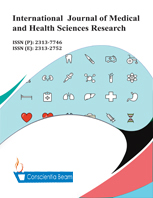A Review of a Community Health Care Workers’ Programme in South Africa
Abstract
This study explored a Community Health Workers’ (CHW’s) programme from the point of view the CHWs, as well as the non-governmental organizations (NGOs) that managed them, by using a mixed-methods approach. A questionnaire was used to collect data from the CHWs, and semi-structured interviews were conducted with key informants and NGO representatives. It became evident that the CHW’s programmes are not contributing effectively to strengthening the health care system, and are merely playing the role of an ‘emergency response’ for patients suffering from HIV. The CHWs’ roles have never been formalised and CHWs are viewed as “volunteers” within the healthcare system, and therefore not given the necessary support. There is also a clear disconnect between the local health facilities and the CHWs’ programmes. Delays in receipt of payments from the Department of Health (DoH) hamper the NGOs’ ability to run viable organisations, which impacts on their ability to deliver desperately needed health related services. The multiplier effect of the aforementioned results, in further delays in the disbursement of stipends to the CHWs, which creates hardships for some of South Africa’s lowest paid workers who, are already shouldering financial and social burdens, which probably compromises the quality of critical services to those most in need. The overall impression is that as SA approaches the end of the second decade of democracy, it is a matter of urgency that primary health care (PHC) is viewed more seriously by the government and, more specifically the DoH.

